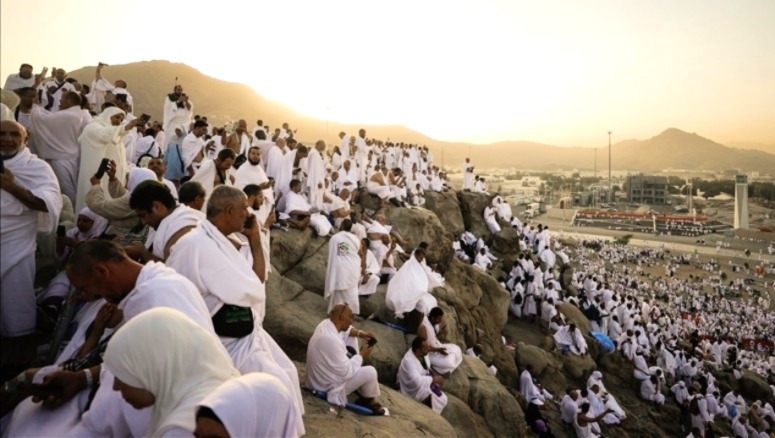At Masjid Namirah in the plain of Arafat, Sheikh Dr. Saleh bin Abdullah bin Humaid, Imam of the Grand Mosque, delivered the Hajj sermon for 2025.
In his comprehensive sermon on Thursday, he addressed the core beliefs of Islam, acts of worship, ethics, and social responsibilities, calling upon Muslims to embrace piety (taqwa), patience, gratitude, and consistent worship of Allah, report agencies.
Sheikh Humaid warned against innovations in religion (bid’ah), gossip (gheebah), and falling prey to satanic whispers.
He emphasized the importance of the fundamental pillars of Islam, including prayer (salah), fasting (sawm), charity (zakat), and pilgrimage (Hajj).
The imam explained that prayer is the connection between a believer and Allah and that congregational prayer fosters harmony and love within society.
Zakat, he said, is a means to support the poor and fulfill their needs.
Sheikh Humaid urged kindness toward parents, orphans, the needy, and neighbors. He reminded Muslims to honor their promises, speak the truth, and uphold modesty, describing these as integral components of faith. He emphasized that good and evil are not equal, and that responding to wrongs with good can transform enemies into close companions.
Earlier, pilgrims arrived in Arafat on Wednesday (8th Dhul-Hijjah) after assuming ihram and offering Fajr prayers in Mina. The rituals continue with pilgrims spending the night under open skies at Muzdalifah after combining Maghrib and Asr prayers, where they collect pebbles for the upcoming stoning ceremonies.
On Eid day (10th Dhul-Hijjah), worshippers proceed to stone Jamrat al-Aqaba with seven pebbles before performing sacrifices – now streamlined through Saudi government’s SMS notification system. This marks their transition from ihram to regular clothing after hair trimming, followed by Tawaf around the Kaaba and the Sa’i between Safa and Marwah hills.
The subsequent days (11th-12th Dhul-Hijjah) require pilgrims to continue stoning all three Jamarat daily with 21 pebbles total. Those performing optional Tawaf must return to Mina overnight, while special provisions allow women, elderly and physically weak pilgrims to conduct the stoning at night for convenience.
Throughout this spiritual journey, from the initial ihram assumption to the final rites, the constant refrain of “Labbaik” maintains the pilgrims’ connection to the divine, uniting diverse worshippers in this profound act of devotion.
According to the Religious Affairs Ministry, this year’s pilgrimage sees 86,958 Bangladeshis among approximately 1.47 million international participants, with local pilgrims potentially bringing the total to 2 million.


